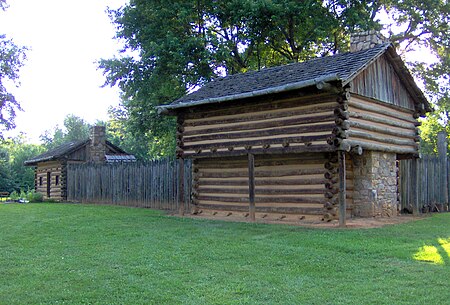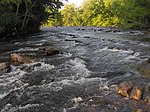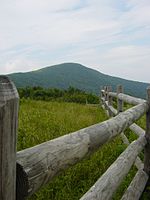Fort Watauga

Fort Watauga, also known as Fort Caswell, was a fortification located in the Watauga River's Sycamore Shoals near modern-day Elizabethton, Tennessee. It was constructed from 1775 to 1776 by the Watauga Association, a semi-autonomous government founded by American settlers living near the river, to defend the settlers against attacks from British-allied Indians. The fort was originally named Fort Caswell after the governor of North Carolina, Richard Caswell.In the 1970s, as part of the United States Bicentennial celebrations, the government of Tennessee authorized a reconstruction of Fort Watauga. A group of archaeologists conducted excavations in the Sycamore Shoals area and uncovered several trenches believed to have been part of the fort's walls. The fort was then rebuilt based on information gained about the fort's design from the excavation, descriptions of the fort in historical sources, and the general design of typical Appalachian frontier forts. The reconstructed fort is now part of Sycamore Shoals State Historic Park.
Excerpt from the Wikipedia article Fort Watauga (License: CC BY-SA 3.0, Authors, Images).Fort Watauga
Patriot's Path,
Geographical coordinates (GPS) Address External links Nearby Places Show on map
Geographical coordinates (GPS)
| Latitude | Longitude |
|---|---|
| N 36.34413 ° | E -82.25421 ° |
Address
Fort Watauga
Patriot's Path
37694
Tennessee, United States
Open on Google Maps






